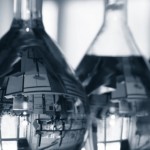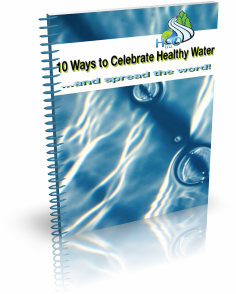You might think that taking a shower with bottled water would be extremely wasteful and expensive… And it would be! The amount of plastic that would be consumed and the money it would cost would make it a very costly move that nobody would want to make.
However, what if you could take a shower with water that was just as clean as bottled water, without having to waste any plastic or spend a fortune? Would you do it? Some people would STILL say no, because they don’t see any need for this when they think about it for the first time.
Once they become informed about the amount of chlorine that is in the water that they bathe in and how much of that chlorine goes into the air, on their walls and into their lungs; then they start to realize that bathing in clean water seems like a much smarter idea!
Luckily, there are water filtration systems such as granular-activated carbon ones that actually remove the chlorine from the water as well as other chemicals! The best of these systems have a convenient point of entry that comes in right on the main water line — after it enters your home but before it splits.
Basically, it is positioned in the perfect place to allow the removal of impurities from all of the water in your home, condo, apartment, town-house, etc. This results in EVERY room in your house having de-chlorinated, filtered, clean water that tastes and smells amazing.
The first part of the system removes all of the dirt and particles that water carries with it from the water pipes that it comes from — which are usually outdated. The beginning stage filter is one of the best ways to ensure that you will have clean water in the event of a water main break.
The second stage involves removing chlorine as well as harmful byproducts that are created by chlorination. What this does is improve the taste significantly, as well as the smell by removing unpleasant odor causing chemicals and balances out the chemistry of your home’s water.
This second stage is a very easy and inexpensive way of counteracting the high chlorine levels that your local municipality may choose to flush the water lines with.
All you have to do is set this up for your home and you and your family can be drinking, showering, bathing and cooking with clean, fresh, healthy water!
Find out how you can get started today with HtruO’s state of the art water filtration system.






 Please wait ...
Please wait ...
